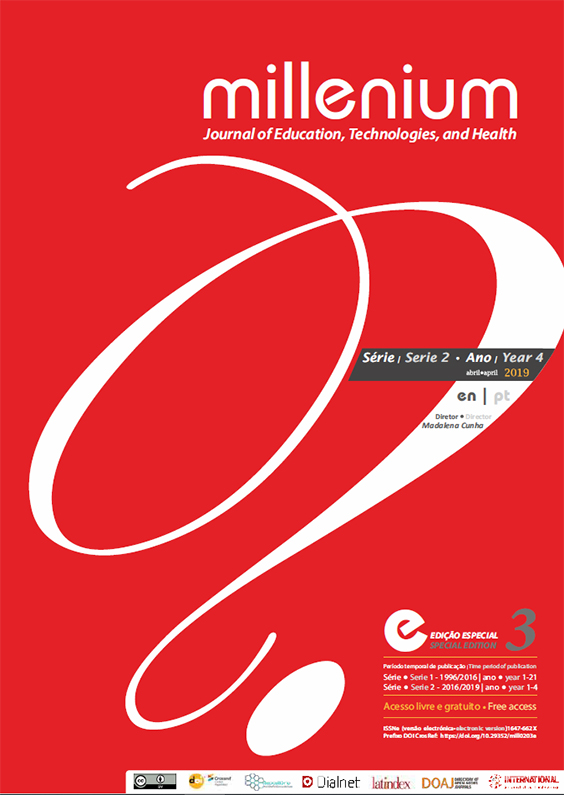The contribution of a portion of meat, fish and eggs for climate change
DOI:
https://doi.org/10.29352/mill0203e.02.00191Keywords:
Climate change, Food Wheel, LCAAbstract
Introduction: The shift in dietary patterns of citizens will have a larger environmental footprint, in terms of greenhouse gas emissions and the use of natural resources. For example, diets high in milk and meat, particularly from ruminants, is associated with increasing emissions of methane from enteric fermentation, carbon dioxide from deforestation for pasture, and nitrous oxide from feed production.
Objectives: For a more sustainable consumption the aim of this study was to quantify and compare the contribution to climate change of one portion of what you eat overall coming from the shelf of Food Wheel related with meat, poultry, fish and eggs to achieve a healthy, balanced diet.
Methods: Life Cycle Assessment, based on ISO 14040/44 standards was the methodology used. The inventory analysis and, subsequently, the impact analysis were performed using the software SimaPro 8.5. The method chosen for the environmental impact assessment was IPCC 2013 GWP 100a.
Results: The results show that a mackerel (fish) portion presents the lower ecological footprint followed by a portion of codfish, chicken, pork tenderloin, eggs, lobster and cow tenderloin, respectively.
Conclusions: The main conclusion of this study is that life cycle impact assessment, using the IPCC 2013 GWP 100a, is a method that can help the people to choose the best food for a meal that is more environmentally friendly helping to mitigate the climate change.
Downloads
References
Blonk Agri-footprint BV (2017a). Agri-Footprint - Part 2 - Description of data. Gouda, the Netherlands.
Blonk Agri-footprint BV (2017b). Agri-Footprint - Part 1 - Methodology and basic principles. Gouda, the Netherlands.
DGC/FCNAUP (2003). A nova RODA DOS ALIMENTOS, um guia para uma escolha alimentar diária. Direção-Geral do Consumidor / FACULDADE DE CIÊNCIAS DA NUTRIÇÃO E ALIMENTAÇÃO DA UNIVERSIDADE DO PORTO. Accessed in: http://www.fao.org/3/a-ax433o.pdf
DGS/DGC (2014). DIA ALIMENTAR COMPLETO, EQUILIBRADO E VARIADO. Direção-Geral do Consumidor / Direção Geral de Saúde. Accessed in: http://www.fao.org/3/a-ax434o.pdf
Ferreira, J. and Domingos, I. (2011). Assessment of Portuguese Thermal Building Legislation in an Energetic and Environmental Perspective. Energy and Buildings, Vol. 43, Issue 12, 3729-3735. https:/doi.org/10.1016/j.enbuild.2011.09.007
Ferreira, J., Viana, H., Esteves, B., Cruz-Lopes, L., Domingos, I. (2014). Life cycle assessment of residual forestry biomass chips at a power plant: a Portuguese case study. International Journal of Energy and Environmental Engineering, 5, Issue 2-3, 1-7. https:/doi.org/10.1007/s40095-014-0086-4
Ferreira, J., Esteves, B., Nunes, L., Domingos, I. (2016). Life Cycle Assessment as a tool to promote sustainable Thermowood boards: a Portuguese case study. International Wood Products Journal, 7, Issue 3, 124-129. https:/doi.org/10.1080/20426445.2016.1160592
Ferreira, J., Esteves, B., Cruz-Lopes, L., Evtuguin, D., Domingos, I. (2018). Environmental advantages through producing energy from grape stalk pellets instead of wood pellets and other sources. International Journal of Environmental Studies. DOI: 10.1080/00207233.2018.1446646
FAO (2017). The future of food and agriculture – Trends and challenges. Rome. Accessed in: http://www.fao.org/3/a-i6583e.pdf
International Standard Organisation (2006 a). EN ISO 14040:2006. Environmental management – Life cycle assessment – principles and framework. International Standard Organisation (eds), Geneva, Switzerland, pp. 28.
International Standard Organisation (2006 b). EN ISO 14044:2006. Environmental management – Life cycle assessment – requirements and guidelines. International Standard Organisation (eds), Geneva, Switzerland, pp. 46.
IPCC, 2013: Climate Change 2013: The Physical Science Basis. Contribution of Working Group I to the Fifth Assessment Report of the Intergovernmental Panel on Climate Change [Stocker, T.F., D. Qin, G.-K. Plattner, M.
Tignor, S.K. Allen, J. Boschung, A. Nauels, Y. Xia, V. Bex and P.M. Midgley (eds.)]. Cambridge University Press, Cambridge, United Kingdom and New York, NY, USA, 1535 pp.
Nemecek, T. and Kägi, T. (2007). Life cycle inventories of agricultural production systems. Ecoinvent report version 2.0. Editors: 0. Volume: 15. Swiss Centre for LCI, ART. Dübendorf and Zurich, Switzerland.
Nielsen, PH., Nielsen, AM., Weidema, BP., Dalgaard, R., Halberg, N. (2003). LCA food database. Accessed in: www.lcafood.dk.
PRé, various authors, (2017). SimaPro Database Manual, Methods Library, Report version 3.0, May 2017, PRé Consultants, Netherlands. Accessed in: https://www.pre-sustainability.com/
UN (2015). Transforming our world: the 2030 Agenda for Sustainable Development. United Nations, General Assembly Resolution A/RES/70/1. New York, USA. Accessed in: https://sustainabledevelopment.un.org/post2015/transformingourworld
UNFCCC (2015). United Nations Framework Convention on Climate Change. Adoption of the Paris Agreement. UN document FCCC/CP/2015/L.9/Rev.1. New York, USA.
Werner, F., Althaus, H., Kunninger, T., Richter, K., Jungbluth, N. (2007). Life Cycle Inventories of Wood as Fuel and Construction Material. Ecoinvent report No 9, EMPA Duebendorf Swiss Centre for Life Cycle Inventories, Dubendorf, CH.
Downloads
Published
How to Cite
Issue
Section
License
Authors who submit proposals for this journal agree to the following terms:
a) Articles are published under the Licença Creative Commons (CC BY 4.0), in full open-access, without any cost or fees of any kind to the author or the reader;
b) The authors retain copyright and grant the journal right of first publication, allowing the free sharing of work, provided it is correctly attributed the authorship and initial publication in this journal;
c) The authors are permitted to take on additional contracts separately for non-exclusive distribution of the version of the work published in this journal (eg, post it to an institutional repository or as a book), with an acknowledgment of its initial publication in this journal;
d) Authors are permitted and encouraged to publish and distribute their work online (eg, in institutional repositories or on their website) as it can lead to productive exchanges, as well as increase the impact and citation of published work
Documents required for submission
Article template (Editable format)





